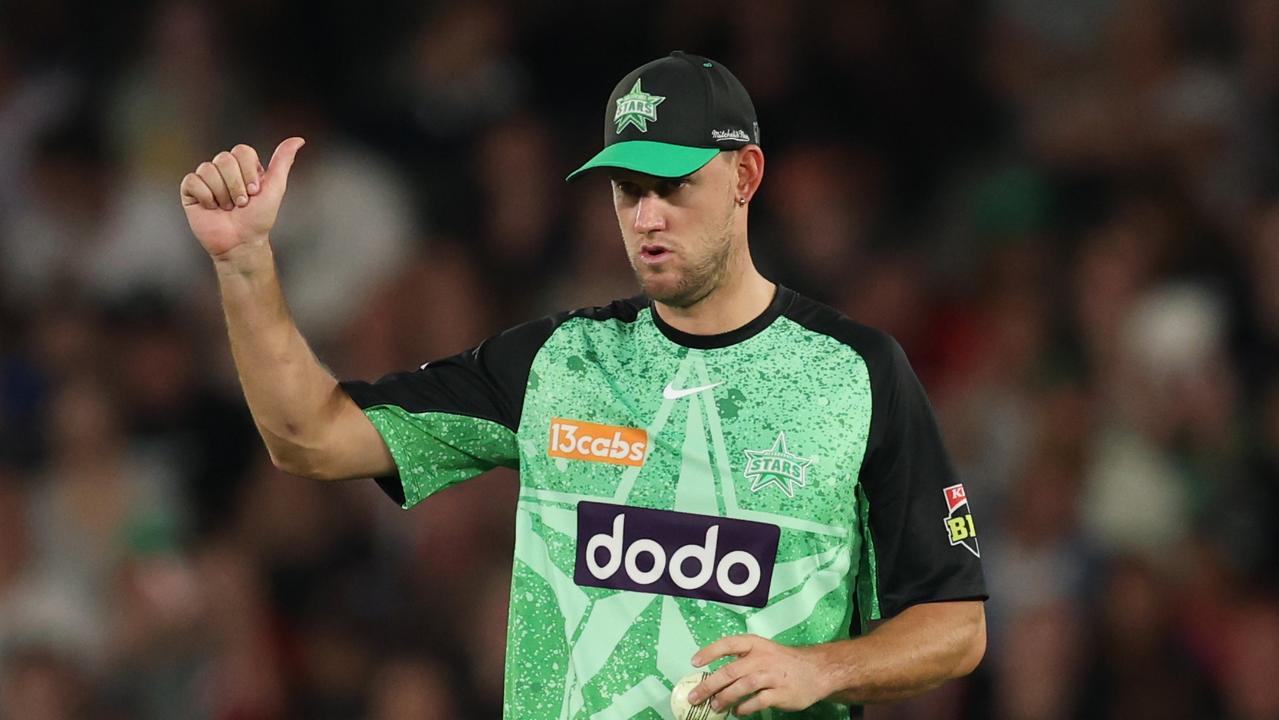Rod Marsh obituary: The legacy left by Aussie cricket legend
Rod Marsh played 96 Tests but no legacy will linger longer than his introduction of Australia’s team song. We recount the life of the cricket legend after his tragic passing.

Cricket
Don't miss out on the headlines from Cricket. Followed categories will be added to My News.
Rod Marsh’s mother wanted him to become a concert pianist but he felt those famous fingers would be better suited elsewhere.
Never afraid to go his own sweet way, Marsh decided, according to his recent autobiography, that being a concert pianist “could hardly have been less compatible with my growing passion for wicket-keeping. I wasn’t very interested in schoolwork either so it was cricket or bust for me.’’
And off he went, despite the early piano lessons, on a journey which made him one of the most decorated exponents of the wicket-keeping craft, a one-time world record holder for most Test dismissals, the first keeper to score a Test century for Australia.
Marsh’s death this at morning at 6am in an Adelaide Hostpital following a heart attack last week has shattered the cricket world.
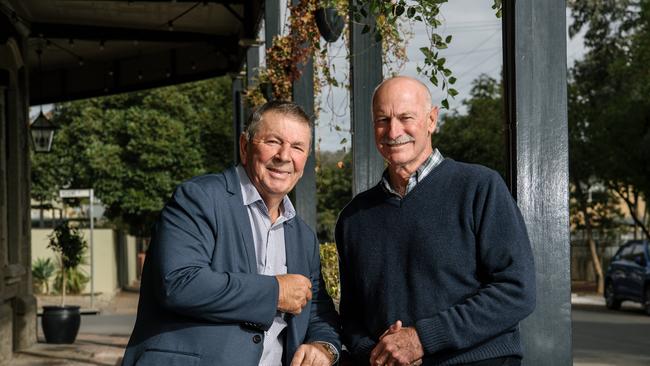
A tearful Adam Gilchrist lauded Marsh’s contribution to the game.
“It’s unbelievable,’’ Gilchrist said. “You feel it can’t be real. He was the reason I took up keeping and I just feel so sorry for his family who have lost a father and a husband. He was a beautiful man.
Only this week Gilchrist changed his Twitter handle to include the front cover of Marsh on his book Gloves, Sweat and Tears.
“I saw that book and that photo when I was 12 and it really inspired me. You see Rod’s fingers are taped in that photo. I ended up taping my fingers all the way through my career just like he did.’’
Every cricketer is ultimately defined by his numbers but numbers alone never did justice to the swagger and soul Marsh injected into Australian cricket when the sizzling 70s swept away the stagnation of Test cricket’s slow-fused 1960s.
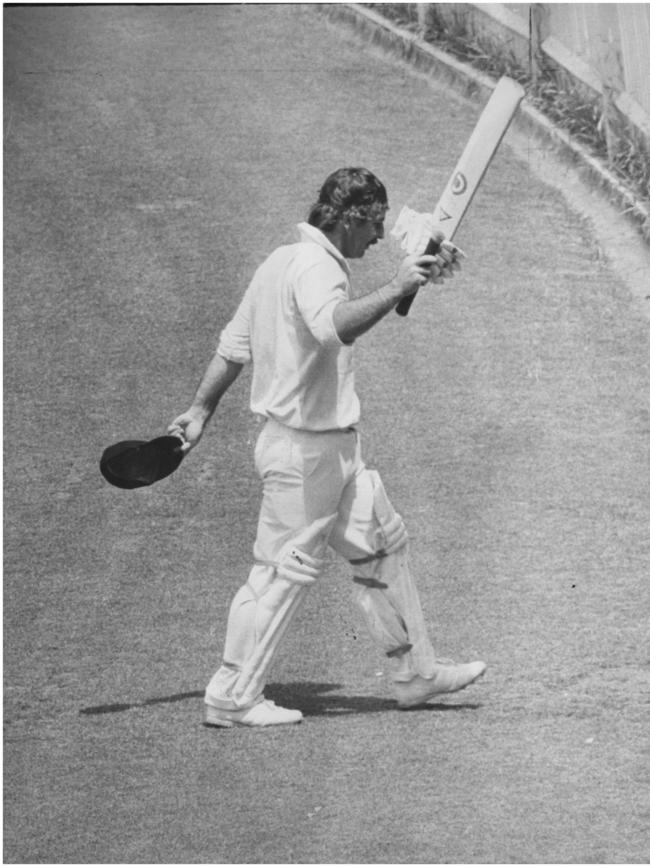
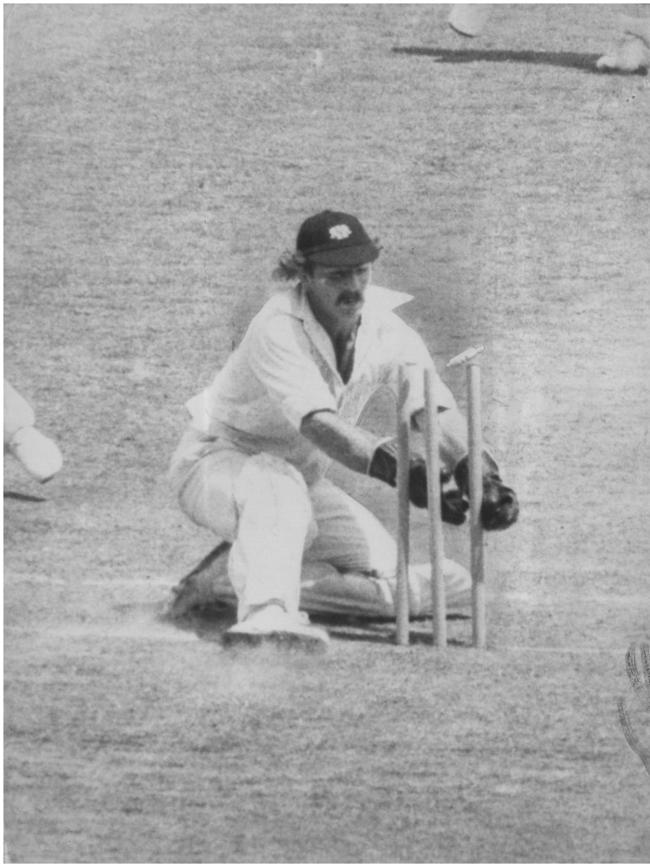
Marsh played 96 Tests but no legacy will linger longer than his introduction of Australia’s team song.
After talking to Ian Chappell about a verse sung by one of Chappell’s old friends, Marsh felt Australia needed a team song and was inspired by Henry Lawson’s 1887 poem Flag of The Southern Cross.
Under the Southern Cross I Stand
A sprig of wattle in my hand,
A native of my native land,
Australia you f------ beauty.
Marsh sung it with gusto after Test wins then handed on the choirmasters job to Allan Border before it passed through David Boon, Ian Healy, Ricky Ponting, Justin Langer, Michael Hussey to the current recipient, Nathan Lyon, which pleased Marsh because “he hasn’t missed a Test since he got it.’’
The brief, cheeky, emotive ditty, first sung in the Australian dressing room at the Gabba in 1974, is as much the embodiment of Australia cricket as the man who first sang it.
Marsh’s long time captain Greg Chappell always said he knew plenty of cricketers who would die for the baggy green cap but only two – Marsh and Ian Redpath – who would kill for it as well.
Marsh’s demeanor, in a Test career which stretched from 1970-84, was like a signature of the ‘70s … the unbuttoned shirt at the top and occasionally sagging at the back, the big shades to go with the big hair, groovy flairs and even bigger nights out.
It wasn’t one thing. It was the whole package, complemented by the gun-slinger’s stare and his compact yet somehow combative walk, that made him a player you could never forget.
Marsh was a brilliant wicket keeper, at his best when taking fully extended diving catches against the quicks, but it was his fibre as a team man and fearless warrior than counted just as much.
When Jeff Thomson exploded into Test cricket Marsh’s hands became instantly bruised and battered.
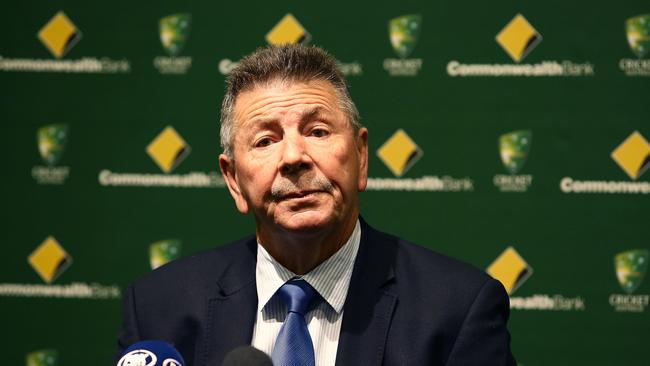
On one occasion one of the Chappell brothers asked him mid-over what he thought of a Thomson thunderbolt. “It hurt like hell … but I loved it,’’ said Marsh, with Australia’s gain outstripping personal pain.
Marsh will always be linked with his great mate Dennis Lillee with whom he surged through the ranks, taking a staggering 95 catches off Lillee’s bowling in Tests.
“Caught Marsh bowled Lillee – Test cricket never got any better than that,’’ said Test quick Rodney Hogg.
Marsh wrote of Lillee: “DK came from a very humble background. His dad was a truck driver, just like mine and we were both brought up out of the city – DK in Jarradale and me in Armadale, two towns 20 kilometres apart. I think he has been the most influential cricketer of the past 50 years, the best player, coach and administrator.’’
Marsh and Lillee adored each other but also took great delight in winding each other up. Lillee once noted to Marsh that in team photos Marsh was actually taller from the waist up than the lofty Max Walker but had much shorter legs.
Once over a beer, Lillee said “if you could run on your arms and bowl with your legs no-one would bowl faster than you.’’
Marsh knew Lillee so well that he claimed he know what he was going to bowl before even speaking to him. It was all in the speed and style of his run-up.
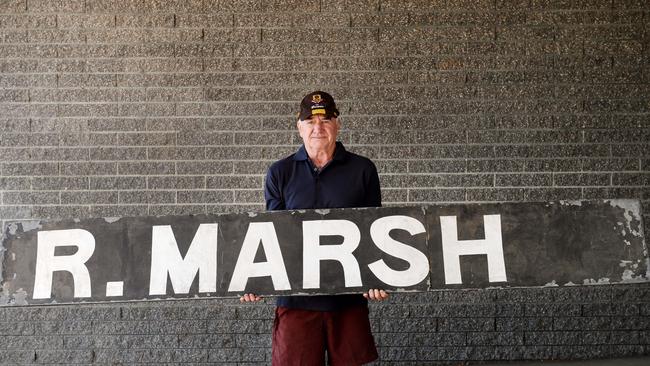
The two of them landed in hot water for having a few quid on 500-1 on England to win a Test at Headingley in 1981 but it was done out of a sense of playfulness.
Marsh set such a high standard that Australia tried six keepers in five years in the years after he retired searching for someone like him before settling on Ian Healy who held the post for a decade.
Marsh was an early coach of the Australian Cricket Academy in Adelaide and guided the likes of Ricky Ponting, Glenn McGrath and Brett Lee.
He once famously said of a 16-year-old Ponting “he will be a once in a generation player’’ and time proved him correct.
He later look over England’s academy and became an England selector, playing a key role in bringing down Australia on the iconic 2005 Ashes tour following his personal push for the exceptional Kevin Pietersen who Marsh knew was much better than the cavalier white ball warrior he was being portrayed as.
Some were surprised that such a patriotic Australia could join England but, as Marsh pointed out, “it’s never easy to switch allegiances but I have always thought that better cricket and more competition benefits the game overall and I feel that is the first loyalty of everyone who loves cricket.’’
More Coverage
Originally published as Rod Marsh obituary: The legacy left by Aussie cricket legend



